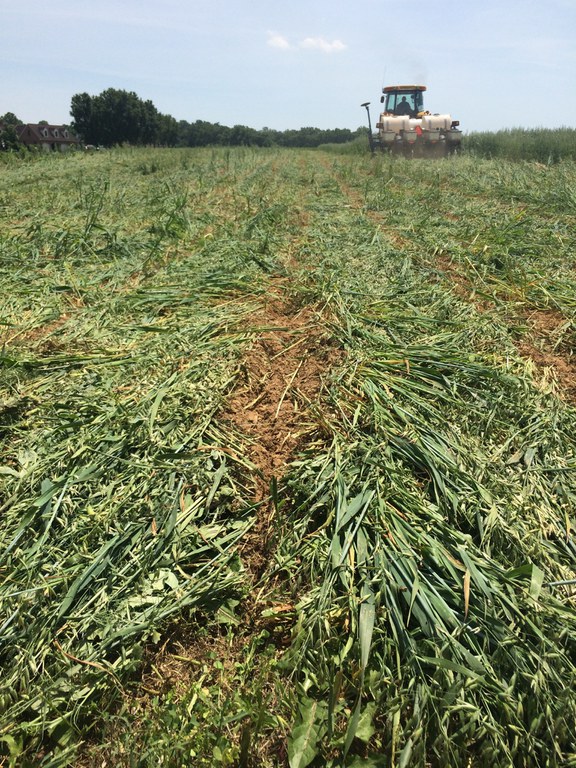Posted: July 11, 2017
On a warm sunny day in late June, over 220 producers, agriculture industry representatives, conservation professionals, researchers and educators gathered at the Penn State College of Agricultural Sciences’ Southeast Research and Education Center (SEAREC) for an agronomic field day to learn the latest in research and practice to help “farm for success.”
"Farming for Success" is an annual field day put on by Penn State Extension's agronomy team and hosted at SEAREC, the College of Agricultural Sciences' research station south of Manheim in Lancaster County. The research facility is a bucolic 155 acre farm in the Chiques Creek watershed. A wide variety of research is conducted on the farm including variety testing of field crops, forages, vegetables, annual and perennial flowers, and other horticultural crops. Other priority research focuses on pest control (disease, insects and weeds), cover crops, inoculants, fertility and environmental management.
Along with Penn State Extension, support was provided by partners PA No-Till Alliance, PA Corn Growers Association, PA Soybean Board, and numerous local agricultural businesses.
This year's event was held on June 29. The agenda had a strong focus on advances in nutrient and manure management, precision agriculture, and soil health management to improve water quality while maximizing yields. After a welcome from SEAREC Director Alyssa Collins, PA Department of Agriculture Secretary Russell Redding set the tone for the day with his opening keynote remarks, praising Pennsylvania farmers for their innovation and leadership in conservation.
Morning and afternoon field sessions led by Penn State Extension educators and researchers as well as industry representatives and producers provided the latest in research and practice in a variety of agronomic topics of interest, including use of electrical conductivity soil testing; improving forage quality; manure management and application; advances in no-till and cover crop management; and many more.
Highlights included field demonstrations of manure injection and "planting green," where no-till roller/planters allow for planting cash crops into standing cover crops to maximize the benefits of the living cover crop.
AEC staff was on hand with a table and informational literature on riparian buffers and other conservation practices. AEC director Matt Royer gave a luncheon presentation on the results of the Penn State-led BMP survey of Pennsylvania farmers to document voluntary conservation practices implemented by farmers in the Chesapeake Bay watershed.
What was clear after a full day of learning in the sun at SEAREC is that farmers, industry, researchers and extension educators will keep learning from each other and innovating; bringing the best science-based solutions to "farm for success."


